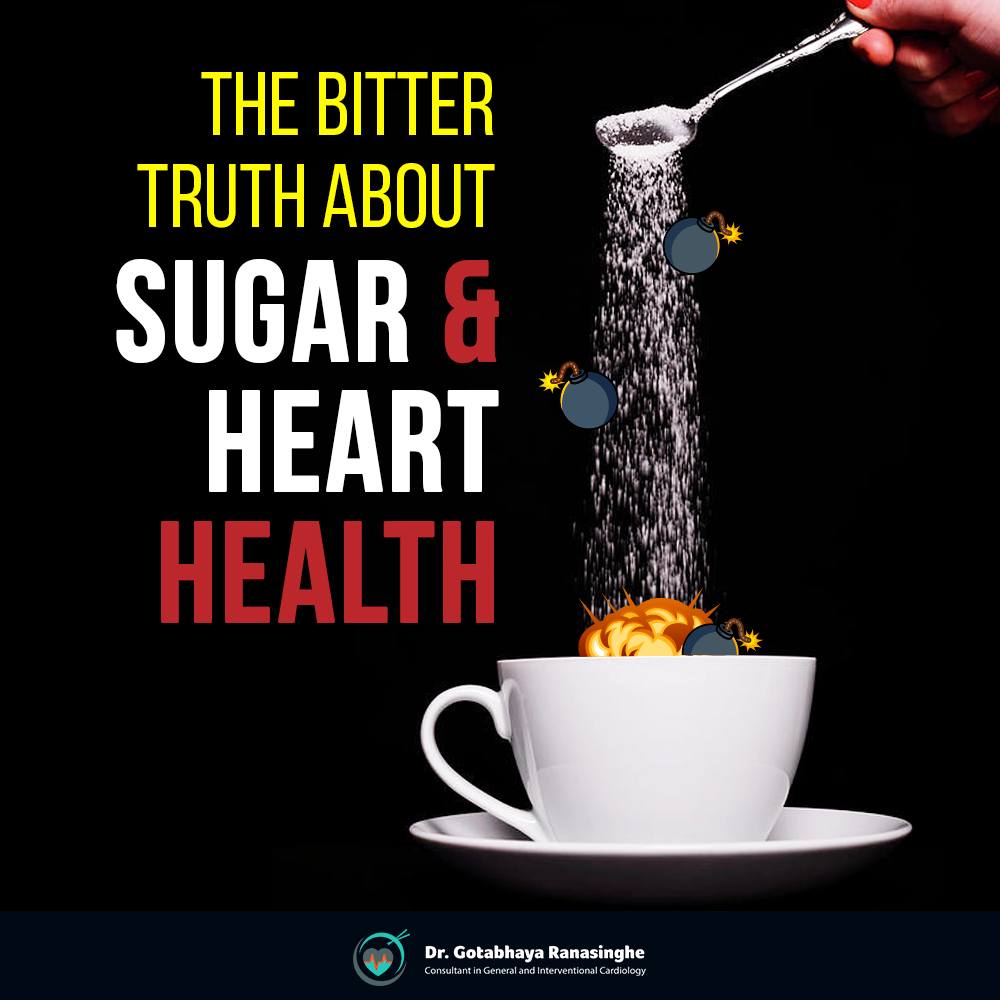The bitter truth about sugar on your heart health
Sugar is an ingredient that can be found in everything from sweet treats to processed foods. While sugar may make food taste delicious, it can have detrimental effects on your health, particularly when it comes to heart health due to complications such as insulin resistance. This is a pressing issue in Sri Lanka in particular, with research showing the current population consumes egregiously more free sugar. People also tend to ignore insulin resistance as there are no obvious symptoms at first when compared to diseases such as diabetes, or because they are not aware of the complication and its effects.
In my experience, a significant portion of the patients I have overseen who have had heart attacks do not show conventional risk factors. However, after testing and research, it is clear they have insulin resistance with a marginal rise in blood sugar due to their heavy dependence on sugary sweets and other processed foods.
I want to discuss the relationship between sugar and heart health, how consuming it leads to insulin resistance and why excessive consumption of sugar can increase your risk of heart disease.
𝐒𝐮𝐠𝐚𝐫 𝐚𝐧𝐝 𝐢𝐭𝐬 𝐋𝐢𝐧𝐤 𝐭𝐨 𝐂𝐡𝐫𝐨𝐧𝐢𝐜 𝐃𝐢𝐬𝐞𝐚𝐬𝐞𝐬
Research has shown that excessive consumption of sugar can contribute to the development of chronic diseases and issues such as:
● Heart attacks
● Diabetes
● High blood pressure
𝐖𝐡𝐚𝐭 𝐢𝐬 𝐈𝐧𝐬𝐮𝐥𝐢𝐧 𝐑𝐞𝐬𝐢𝐬𝐭𝐚𝐧𝐜𝐞?
One of the main ways in which sugar can negatively impact your health is by causing insulin resistance.
Insulin is a hormone that helps regulate blood sugar levels in the body. However, when you consume too much sugar, your cells can become resistant to insulin and they cannot absorb glucose from the bloodstream effectively, which can cause a buildup of sugar in the blood, leading to higher blood sugar levels. This situation where insulin no longer can take the sugar into the cells is called insulin resistance.
This accumulated sugar in the blood could lead to endothelial dysfunction, thickening, hardening and increased calcium deposition in the blood vessels.
𝐓𝐡𝐞 𝐄𝐟𝐟𝐞𝐜𝐭𝐬 𝐨𝐟 𝐈𝐧𝐬𝐮𝐥𝐢𝐧 𝐑𝐞𝐬𝐢𝐬𝐭𝐚𝐧𝐜𝐞
Insulin resistance is a very subtle condition that many people may not be aware of. When the body’s cells become resistant to the effects of insulin, the pancreas produces more insulin to regulate blood sugar levels. As a result, insulin levels in the blood become high, even though blood sugar levels may only be marginally elevated. This can be a dangerous situation, as insulin resistance has been linked to several negative health effects, including the hardening of arteries, calcium deposition in the arteries, and oxidation of LDL cholesterol.
Even individuals who are not diabetic can be affected by insulin resistance. One of the most concerning effects of insulin resistance is the hardening and narrowing of arteries throughout the body, which can lead to high blood pressure, angina and an increased risk of heart attacks. Additionally, insulin resistance can cause even normal levels of LDL cholesterol to become oxidized, making them sticky and vulnerable to deposit in the wall of the blood vessels, increasing the risk of heart disease despite seemingly normal cholesterol levels due to the formation of cholesterol plaques. This could happen even with a marginal rise in blood sugar levels in the blood that one may not be aware of or perhaps ignore thinking that it’s normal. This could lead to heart artery narrowing and heart disease in the long run. Furthermore, insulin resistance and high sugar levels in the blood can ultimately lead to diabetes affecting all systems of the body in turn causing various complications.
In conclusion, excessive consumption of sugar can have a significant impact on your heart health, increasing the risk of insulin resistance and chronic diseases such as diabetes, high blood pressure and heart disease. While it may be difficult to completely eliminate sugar from your diet (I know how hard it is firsthand!), it is important to be mindful of your sugar intake and to make healthier food choices. It is also vital that you do not ignore the marginal rise of your blood sugar and its association with insulin resistance and its potential complications.
By reducing your consumption of sugar and focusing on a healthy, balanced diet, you can take steps towards improving your heart health and overall well-being.
So start changing your diet today by cutting out those pesky sugary foods! Trust me, it’s for the best!
Gotabhaya Ranasinghe




